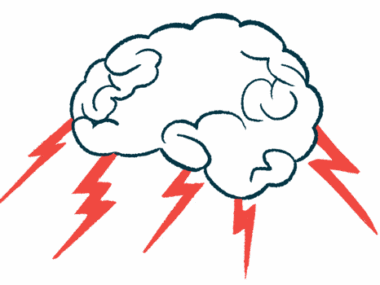IMAC, Brain Scientific merger to offer range of neurological care
Focus will be on disease management of Parkinson’s, Alzheimer’s, and stroke
Written by |

IMAC Holdings and Brain Scientific have agreed to merge to offer solutions that cover the spectrum of care for neurological diseases, starting from diagnosis all the way through to treatment.
The collaboration will focus mainly on disease management for people with Parkinson’s disease, Alzheimer’s disease, and strokes.
The two companies have signed a document known as a letter of intent that shows they are committed to joining forces in a way that’s fair and equal for both. The document lays the groundwork for the merger’s end-to-end solutions.
Merged company hopes to expand into new markets
Brain Scientific will contribute its diagnostic and movement technologies, while IMAC will provide regenerative rehabilitation services, which integrate regenerative medicine with physical therapy to help patients recover from a functional point of view.
“We believe that the combination of IMAC and Brain Scientific would be a match that provides a pathway to become a leader, a destination, and trusted brand in the growing field of neuro deficit disorders, diagnosis and treatment,” Jeff Ervin, CEO of IMAC, said in a joint press release.
Besides providing regenerative rehabilitation services at centers located across the U.S., IMAC also holds a research division that’s testing an investigational stem cell therapy for bradykinesia, or slowness of movement, due to Parkinson’s.
An ongoing Phase 1 clinical trial (NCT04385056) is evaluating the safety and tolerability of the stem cell therapy in Parkinson’s patients, 55 and older, who’ve had bradykinesia for at least three months. Participant dosing was completed in September.
In its inventory, Brain Scientific has two electroencephalography (EEG)-based products designed to make testing easier and more efficient, and allow doctors to diagnose more patients throughout the day. They are the NeuroCap and the NeuroEEG.
EEG is a test that measures the brain’s electrical signals using small electrodes (sensors) attached to the scalp. The signals are recorded by a device and looked at by doctors or other specialists.
Abnormal patterns of brain electrical activity have been reported in people with several neurological conditions, such as Parkinson’s and Alzheimer’s. These patterns have also been suggested to help identify Parkinson’s patients with mild cognitive impairment.
NeuroCap and NeuroEEG designed to make testing easier and more efficient
The NeuroCap is a single-use headset that removes the need for the current lengthy process of measuring and placing electrodes on a patient’s scalp. Because it is disposable, it can also help prevent the risk of cross-contamination between patients.
The NeuroEEG is a portable device that captures, shows, and stores the electrical signals of a patient’s brain on a computer. It allows doctors to save time by allowing rapid access to EEG reads.
“At Brain Scientific, we are accelerating the time to prep, test, and read EEG studies anytime and are finally bringing EEG testing to remote locations and in the field,” said Hassan Kotob, CEO of Brain Scientific. Kotob is expected to serve as the chairman and CEO of the merged company.
“We believe that a Brain Scientific and IMAC merger would allow us to accelerate our growth and expand into new channels and markets to provide those suffering from neurological disorders with the best care possible,” Kotob added.







